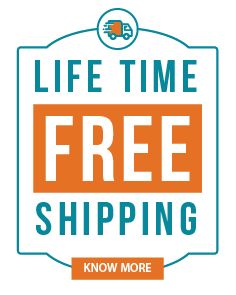Generic Vs Brand name drugs
Generic vs Brand Name Drugs: What Are The Differences?
We all know, generic drugs are always cheaper than brand name drugs. You should read the following facts about Generic and brand name drugs:
BRAND DRUGS
Protected By a Patent
Supplied By Single Company
Marketed Under a Brand Name
Drug Prices Are Decided By The Pharmaceutical Companies
GENERIC DRUGS
Low Cost Version Of Brand Drugs
Produced By Generic Companies
Are As Safe And Effective As Brand Drugs
Drug Prices Are Decided By The Pharmaceutical Companies
What is a generic drug?
A generic drug is identical (or bioequivalent) to a brand name drug in intended use, dosage, strength, effectiveness, and safety. For a generic drug to be approved, it must meet the same quality standards as the brand name product. Even the generic manufacturing, packaging, and testing sites must meet the same standards. Many generics are produced in the same manufacturing plant as their branded counterparts.
Are generics as effective as the brand?
Yes. Generic drugs are required by the Food and Drug Administration (FDA) to have the same active ingredient, strength, dosage form, and route of administration as the branded product. The FDA ensures this via thorough testing and review of bioequivalence data.
So how exactly does a generic drug differ from a brand?
The major difference between a generic and brand name drug is the price. Most generics cost 70% to 90% less than the brand, thereby saving consumers an estimated $8 billion to $10 billion a year at pharmacies. Billions more are saved by hospitals using generics. A generic drug also may differ from a brand in terms of shape, color or packaging, but these differences only affect how the medicine looks, not how it works.
Why are generics cheaper?
Brand name drugs are expensive because they don’t have any competition to drive their price down. But when patents on brand name drugs near expiration, other manufacturers can apply to the FDA to sell generic versions. Because the generic manufacturers are not required to repeat costly clinical trials and generally do not incur advertising, marketing, and promotional costs, they’re able to sell their product for much less. Conversely, companies that make brand drugs have often spent huge amounts on research, development and advertising and must price their drug at a cost high enough to recoup their spending and turn a profit. Additionally, when more than one company makes generic versions of a drug, it creates competition in the marketplace, further lowering prices. These savings are passed on to you, the consumer, in the form of lower copays.
How do I get generic drugs? Will my doctor prescribe them?
The generic substitution laws in the U.S. vary by state. Some state boards of pharmacy have instituted mandatory generic substitution laws, where pharmacists will substitute a generic, when available, for a brand-name medication. Some states require the patient’s consent prior to substituting a generic for a brand. So the generic version of the prescribed drug may be dispensed automatically, or only with your approval or if you request it. Private and government insurance companies often promote using generic drugs whenever possible to lower costs. Also, doctors are more apt to prescribe generics because they want their patients to have drugs that are as safe and effective as branded medications but are more affordable.
Important Note: All Medicines & medical devices dispensed by Offshorecheapmeds.com are registered and regulated by the CDSCO







